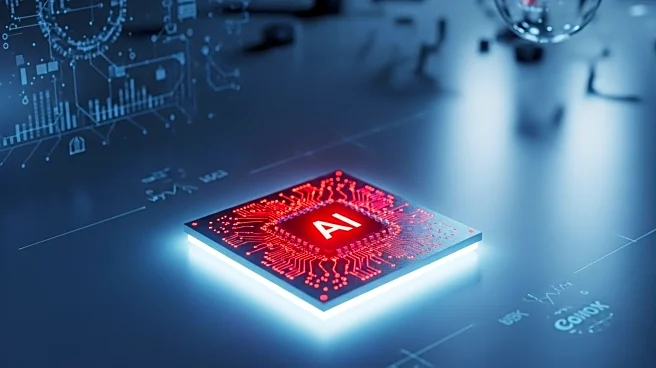What's Happening?
The AI industry is currently experiencing a significant boom, with major tech companies like Oracle seeing substantial stock surges. This has led to concerns about a potential bubble in the AI sector, reminiscent of past tech bubbles. Despite the hype surrounding large-scale AI models, there is a growing recognition of the value of smaller, domain-specific AI systems that deliver tangible efficiency gains and cost savings. These systems are proving to be more sustainable and economically viable compared to the expensive mega-models that dominate headlines. Examples include local government applications in Austin, Texas, which have streamlined processes like building permit approvals, demonstrating the practical benefits of focused AI deployments.
Why It's Important?
The potential bursting of the AI bubble could have significant implications for investors and companies heavily invested in large-scale AI models. While these models attract attention and capital, they often struggle to demonstrate sustainable economics due to high operational costs. In contrast, smaller, specialized AI systems offer a more strategic approach, providing real-world benefits and resilience against economic downturns. This shift towards leaner AI models could redefine industry standards, emphasizing efficiency and targeted applications over scale. Companies that adapt to this model may find themselves better positioned to weather economic challenges and regulatory scrutiny.
What's Next?
As the AI industry evolves, companies may increasingly focus on developing and deploying specialized AI systems tailored to specific business needs. This approach could lead to more sustainable growth and reduced vulnerability to market fluctuations. Additionally, regulatory scrutiny is expected to increase, prompting businesses to prioritize security and data ownership. The industry may see a shift towards decentralized AI models that offer resilience and cost-effectiveness. Executives are advised to invest in AI systems that align closely with their data and operational requirements, ensuring long-term viability and competitive advantage.
Beyond the Headlines
The evolution of the AI industry towards specialized systems could have broader implications for technology adoption and innovation. This shift may encourage a more collaborative approach, where networks of specialized AI systems work together, similar to a city grid. Such a model could enhance interoperability and efficiency across various sectors, fostering innovation and driving economic growth. Additionally, the focus on sustainability and resilience may influence corporate strategies, encouraging businesses to prioritize long-term value creation over short-term gains.










